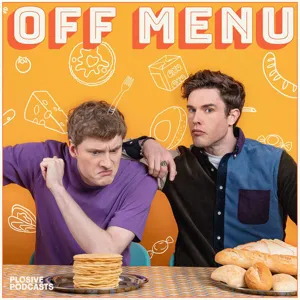Podcast Summary
The Art of Gift Giving: How to Choose the Right Presents for Your Loved Ones: When choosing a gift, consider the recipient's preferences and personality, and focus on thoughtful and meaningful presents rather than expensive or useful ones. Communication, creativity, and empathy can enhance the quality of relationships and satisfaction in gift-giving.
Gift giving is an ancient practice that humans have used to express love, admiration, and obtain favors, but getting the right gifts is not easy. New research reveals that people prefer receiving thoughtful and meaningful gifts rather than expensive or useful ones. Therefore, it's important to think about the recipient's preferences, desires, and personality before selecting a gift. Moreover, our expectations from the gift also matter, as we often associate them with our self-esteem and identity. Giving bad gifts can lead to negative emotions and reduce the closeness in relationships. Thus, to become a better gift giver, we should focus on empathy and understanding, communication, and creativity. This can enhance the giver and receiver's satisfaction and improve the quality of relationships.
The Negative Impact of Bad Gifts on Relationships and Economics: Thoughtfulness and consideration for the recipient's preferences are crucial for a successful gift-giving experience. Bad gifts can lead to relationship strain and economic costs, as recipients feel burdened to reciprocate.
Bad gifts can harm relationships by signaling a lack of thoughtfulness and respect for the recipient. Obligations to reciprocate further compound the negative impact, as recipients feel burdened to give a gift in return. Additionally, research shows that bad gifts result in economic costs, as the likelihood of a gift matching the recipient's preferences is lower than if they had made their own purchasing choice. It is important for gift givers to consider the recipient's perspective and preferences to ensure a positive gift-giving experience.
Rethinking the Pressure of Gift Giving: Gift giving puts a burden on finances and creates mismatches between givers and receivers. Consider the recipient's long-term happiness and prioritize value, utility, and joy over immediate exchange.
Gift giving as an enterprise in our society is problematic and places a burden on gift givers in terms of financial expenses. Americans spend somewhere around $800 each Christmas on gifts, which is astronomical for many families. This obligation to engage in gift giving comes at the expense of their own financial wellbeing. It is time for us to rethink the way we give gifts. Gift givers focus on the moment of exchange, while recipients prioritize the experience of owning the gift over the immediate joy of receiving it. These differences produce mismatches, including the surprise factor. It is important to consider recipients’ long-term happiness and provide them with something that brings value, utility and joy in owning it.
The myth of surprising gifts: Practicality matters more than surprises when it comes to choosing gifts. Focus on the recipient's needs and avoid giving the same gift over and over to show creativity.
The belief that surprising gifts are valued more than expected ones is a myth. Gift givers tend to think that making a surprising gesture drives a good gift, but recipients care less about the unusual and the glamorous and more about the practicality and usefulness of the gift. Gift givers often want to be seen as creative, signaling their identity as a person and gift giver. However, the height of uncreativity is to give the same gift over and over again. Signaling creativity comes at the expense of the recipient, and gift givers should consider the practical needs of the recipient when choosing a gift.
The Psychology of Gift-Giving and Social Norms: Gifts don't have to be expensive to bring happiness, and there are norms that dictate gifting between different generations. Giving socially conscious gifts can boost the giver's status.
The act of gift-giving involves not only the giver and the recipient, but also third parties, especially in settings like baby showers and weddings. Gift-givers want to avoid being one-upped by others and thus are motivated to give more expensive gifts to outdo their competitors. However, the cost of a gift is not directly proportional to the happiness it brings to the recipient. Expensive gifts that come with an expectation of reciprocation can make the recipient feel anxious and befuddled. There are norms in gifting that differentiate between gifting down generations versus gifting up generations. Giving socially conscious gifts that showcase the giver's virtuous causes can serve as a form of status-seeking.
The Pitfalls of Socially Conscious Gift Giving: Recipients value useful gifts over gifts with a societal impact. Thoughtfulness and consideration for the recipient's wants and needs are key in giving successful gifts. Avoid paternalistic gifting and prioritize the recipient's desires over your own agenda.
Research shows that socially conscious gifts, while great for society, are not valued as much by recipients as givers hope they would be. Recipients would much prefer receiving something that will be useful to them than necessarily useful to society. The controversial Peloton ad highlights how inappropriate it can be to give gifts that are perceived as trying to change the recipient in some way. Recipients can often see through what the giver is trying to do, even in more subtle cases of paternalistic gifts. It's more effective to give gifts that are thoughtful and considerate of the recipient's wants and needs rather than the giver's own agenda.
The Art of Giving Gifts: Prioritizing Recipient's Perspective: To give good gifts, prioritize the needs and wants of the recipient. Avoid the impulse to focus on your own desires for status or prestige. Practice seeing things from the recipient's point of view.
Gift giving is often an exercise in selfishness, with gift givers prioritizing their own needs over the preferences of recipients. In order to give good gifts, we need to start seeing the world from the perspective of recipients and prioritize their needs and wants over our own desire for status and prestige. However, this is easier said than done as we often suffer from focalism or the inability to take the perspective of others. To be better gift givers, we need to actively try to see the world from the recipient's point of view and prioritize their preferences, needs and wants.
Honest Feedback: The Key to Successful Gift-Giving: Avoid mismatches between what recipients actually like and what they receive by simply asking them what they want. Prioritize their preferences over creativity or thoughtfulness to make gift-giving a mutually satisfying experience.
In gift-giving, social norms often prevent honest feedback, which can lead to mismatches between what recipients actually like and what they receive. Asking recipients what they want is the best way to avoid these mismatches and ensure a successful gift exchange. It's time to challenge the established goal of gift-giving and prioritize the recipients' preferences over our own desire to demonstrate thoughtfulness and creativity. By having open conversations and avoiding the social taboo against honest feedback, gift-giving can become a more meaningful and satisfying experience for both givers and receivers.
How sharing a Google Doc can help you become a thoughtful gift giver.: By being explicit about what you want, you ensure you truly enjoy your gifts. Consider experiences over material possessions for longer-lasting happiness.
By maintaining a shared Google Doc of desired gifts exceeding a minimum expense, Jeff Galak and his wife have found a way to be thoughtful gift givers while maintaining an element of surprise. By explicitly stating what they want, they ensure that they truly enjoy the gifts they receive, even if they are not surprised by the actual object. Additionally, research has shown that experiences can bring more happiness than material possessions.
The Disconnect between Gift Givers and Receivers: Gift givers prefer material possessions, while recipients prefer experiences and sentimental gifts. It's important for gift givers to prioritize the recipient's preferences and understand that experiential and sentimental gifts provide more long-term value and bring people closer together.
Gift givers tend to prefer material possessions over experiences, while recipients prefer the opposite. Experiential gifts bring people closer together and provide more value in the long run. Sentimental gifts are also highly valued by recipients, as they bring people together. The wow factor of material gifts may be more immediate, but the value of an experience or sentimental gift lasts longer. It is important for gift givers to understand this disconnect and prioritize the recipient's preferences over their own when choosing gifts.
The Joy of Sentimental Gifts: Personal and handcrafted gifts given on random days hold the highest sentimental value and bring unexpected joy to recipients, surpassing the traditional holiday gifts.
Sentimental gifts hold a higher value than material ones, but gift givers often opt for low-risk choices. Recipients value gifts given on non-occasions more than those given on traditional holidays. Personal, handcrafted gifts hold more sentimental value than expensive ones. Giving sentimental gifts on random days brings the most joy and surprises recipients the most, as it is unexpected and holds no prior expectation.
The Value of Non-Occasion Gifts in Building Relationships: By putting the recipient's interests and needs first, giving unexpected gifts can create lasting impressions and show genuine care without breaking the bank. Thoughtfulness and generosity are key to successful gift giving.
Non-occasion gifts have a higher perceived value to recipients than gifts given for special occasions. These gifts can create a connection and show genuine care towards the recipient without breaking the bank. An unexpected gift can create a lasting impression and foster relationships. Being a good gift giver means putting the recipient first and considering their interests and needs. Selfless gift giving can be seen in anonymous gift exchanges like the Reddit Gift Exchange. Overall, thoughtfulness and generosity towards others is key to successful gift giving.
The importance of communication in gift giving: When giving gifts, it's important to communicate with the recipient to ensure they receive something they truly want or need. This can prevent disappointment and promote a more fulfilling gift exchange experience.
Gift giving is often done with minimal information and an expectation set about the expense. The act of giving without expectation of reciprocity is a wonderful sentiment. However, gift giving could be improved by simply talking to the recipient and asking them what they would like. This would avoid the irony and selfless decision-making of O. Henry's short story, The Gift of the Magi.





